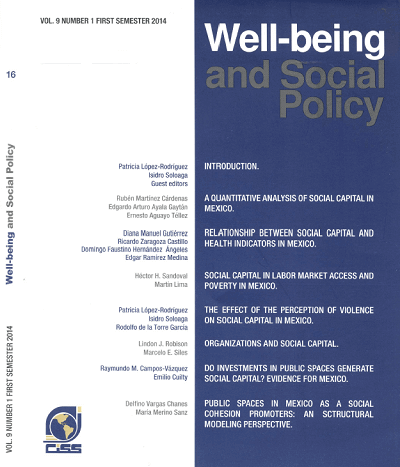
This research assessed the effects of several contextual factors (e.g, neighborhood insecurity, evaluation of public spaces, infrastructure, low risk behaviors) on social cohesion and residential satisfaction, in the context of low and medium-low socio economic status of individuals nearby renovated public spaces (parks and recreational facilities) in Mexico. The research method is based on structural equation models to study the concurrent interrelations of factors influencing social cohesion and residential satisfaction. The findings of the study suggest the importance of public spaces in promoting informal social ties that enhance social cohesion. The effect of social cohesion is able to counteract perceived insecurity and fear of crime.
